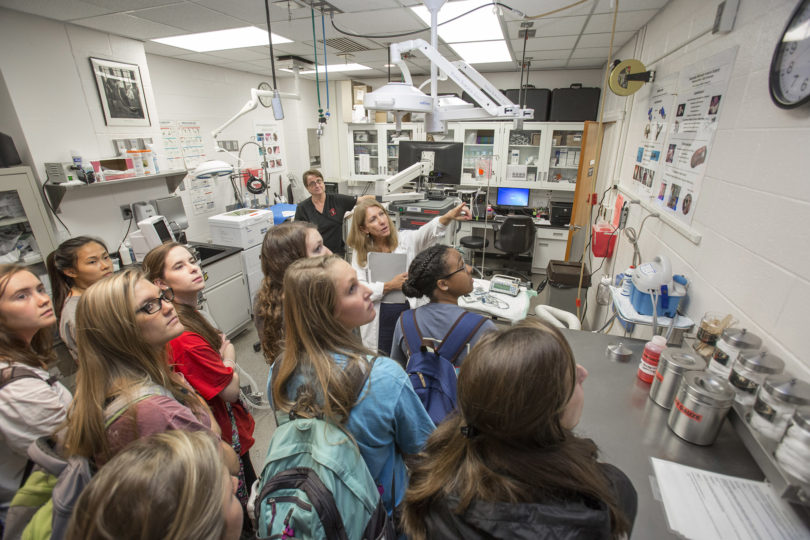An engaged student is a successful student. That’s the premise behind UGA’s First-Year Odyssey Seminar Program now entering its fifth year.
“If you get students engaged, they are more likely to be successful, to be active learners and participate in lifelong learning,” said Fiona Liken, assistant vice president for instruction and associate director of the First-Year Odyssey Seminar Program. Decades worth of research backs up that idea.
The goals of FYO seminars, which are required for every first-year student, are to get undergraduates to engage with the academic culture at UGA, build relationships with faculty and learn about the university’s teaching, research, outreach and international mission. The program is housed in the Office of the Vice President for Instruction.
What makes the First-Year Odyssey Program unique is not necessarily its goals, but how they are achieved. Ronald Cervero, associate vice president for instruction and director of the FYO Seminar Program, said many colleges and universities offer first-year seminars to introduce students to college life, but few connect top faculty with first-year students.
What distinguishes UGA from a lot of other colleges is its status as a Research I institution, he said. In FYO seminars, faculty lead a conversation with students about their research areas.
“Often first-year seminars are about teaching students study skills and showing them around campus,” Cervero said. “Our focus is on faculty research. There is real academic content.”
With the diversity of research at UGA comes an array of topics to study in these seminars. From the science of animal forensics to brain health, from literature by Homer to Harper Lee, and from the analysis of the hot dog to zombie plagues—the hundreds of FYO seminar titles offer something interesting for every student. And students don’t have to choose a seminar based on their major.
Emily McLanahan, now a fourth-year Grady College student from Elberton, said she loved the variety and ability to pick what interested her. As a first-year student, McLanahan chose an FYO seminar about the Holocaust, taught by Jerry Legge, associate provost for academic planning.
“We were able to really dive in and go deeper than I had been taught in high school,” McLanahan said.
Digging deep and engaging in discussion is a highlight of the collegiate experience, and the FYOS Program gives students a healthy dose of that.
In Janet Frick’s FYO seminar, Humans and Animals in Modern Society, students read about and then discuss emotional topics about animal treatment, like factory farms and animal testing. Students can bring strongly held views about these issues.
“We have some great discussions,” said Frick, an associate professor and associate department head of psychology. “It’s teaching students that, more broadly in a university, you are going to be asked to grapple with ideas that you either agree with or don’t. They learn to abide in that discomfort.”
But it’s not just class time that’s important to the curriculum of the FYO seminars. The program also promotes experiences across campus. The program requires students to attend three on-campus events to engage in the university community. Those events, including cultural programs and special lectures, are tied with the mission of the university.
In its first four years, the FYO Seminar Program has been a clear success. According to student surveys, 58 percent of students said their seminar helped them make plans for future learning, 59 percent learned about an opportunity to participate in UGA research and 81 percent said they were introduced to faculty members’ roles at UGA.
And getting to know faculty is one of the most important goals, Cervero said.
By design, the seminars are small classes of no more than 15 students. That creates an environment for building relationships.
“This is one of our attempts to shrink the university to a manageable size,” Cervero said.
In large classes, it’s difficult to build one-on-one relationships between students and faculty, said Mark Farmer, a professor and director of biological sciences in the Franklin College of Arts and Sciences.
Farmer’s FYO seminar, The Anthropocene—Earth’s Sixth Mass Extinction, allows him more flexibility to interact with students than his Introduction to Biology class, which seats 300. Engagement in the small class settings is the key to student success. Based on interactions in FYO seminars, Farmer has written letters of recommendation for students going to graduate and medical school.
“It’s really important at a place as big as UGA to find ways to make it smaller and more intimate,” Farmer said.





